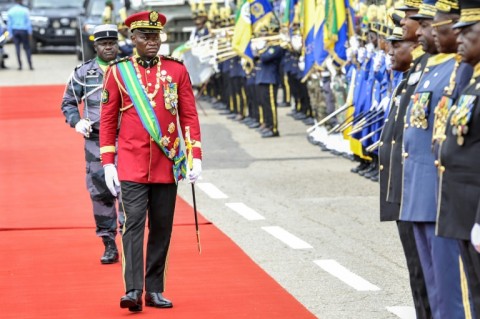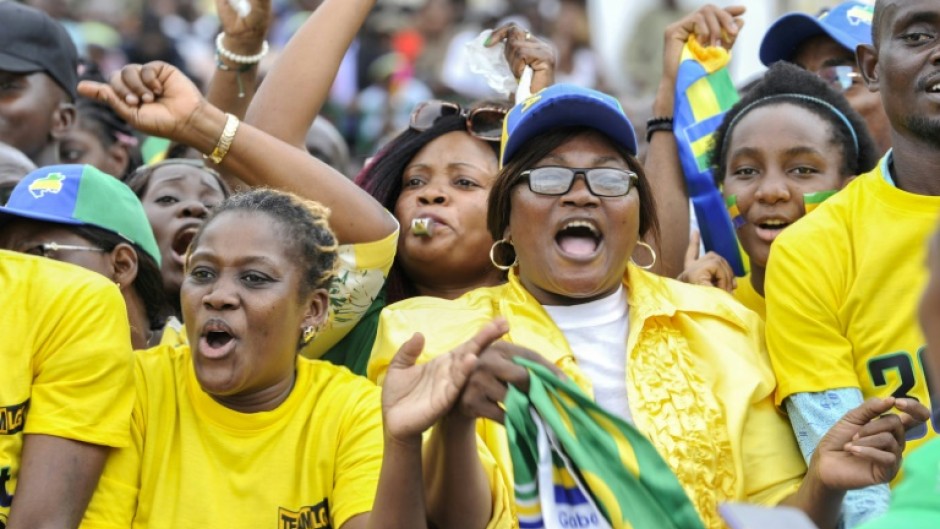LIBREVILLE - Gabonese strongman General Brice Oligui Nguema presided over a military parade and other events on Friday to mark a year since a military coup brought the curtain down on 55 years of iron-fisted rule by the Bongo dynasty on the oil-rich African country.
Crowds started gathering early in the morning near the presidency in the capital Libreville to greet the transitional president with songs.
Oligui, 48, who deposed president Ali Bongo Ondimba on 30 August, 2023, moments after Bongo was proclaimed the winner in a presidential election, arrived at the parade standing on the back of a military vehicle.
In a speech to the nation late Thursday, he hailed "the courageous decision" to end the former regime and outlined initiatives for "a rapid and lasting transformation of everyday life" for the Gabonese people.
"Infrastructure is obsolete and almost non-existent in some provinces, the unemployment rate is very high," Oligui said.
"There are too many evils that overwhelm the Gabonese," the former head of the presidential guard, dressed in his red uniform, said on Friday.
"We decided to put the country under construction, to relaunch economic activity and to promote the creation of wealth by putting in place support and assistance mechanisms," he added.
The general, who has promised to hand power back to civilians next year, has already hinted at his ambitions for the August 2025 presidential elections.
"Yes, it's finally our flight towards bliss," proclaim large billboards in Libreville, ahead of a referendum on a new constitution planned by the end of the year.
The transitional government has pledged financial support of 63 billion CFA (around $105 million) to the provinces as well as the creation of nearly 2,600 kilometres of roads across the Central African nation by 2030.
- Infrastructure projects launched -
On Thursday, the first day of the anniversary celebrations, Oligui inaugurated several road, air and maritime transport projects, including Fly Gabon -- the new avatar of the national carrier Air Gabon which was liquidated in 2006.
Fly Gabon will start services on Saturday.
The official festivities on Friday include a military parade, a football match between lawmakers and members of the government, a concert and a fireworks display.
Since the coup, Ali Bongo has been confined to his private estate, according to his lawyer, and his wife and eldest son held in conditions denounced by their lawyers.
The junta-led transitional government has said little about the Bongo family's fate apart from saying that he is free to leave the country.
It has introduced free school tuition, repaired more than 600 kilometres of roads and launched youth-in-work programmes to tackle an unemployment rate close to 40 percent among under-25-year-olds.
But day-to-day problems persist, including regular water and electricity cuts, and a high cost of living.

Accustomed to living off the proceeds of oil, manganese and timber, the country manufactures almost nothing and imports nearly everything else.
That includes fruit and vegetables, despite its fertile land that receives abundant rainfall.
In Africa's third-richest country in terms of per-capita GDP, one in three lives below the poverty line, according to the World Bank.

